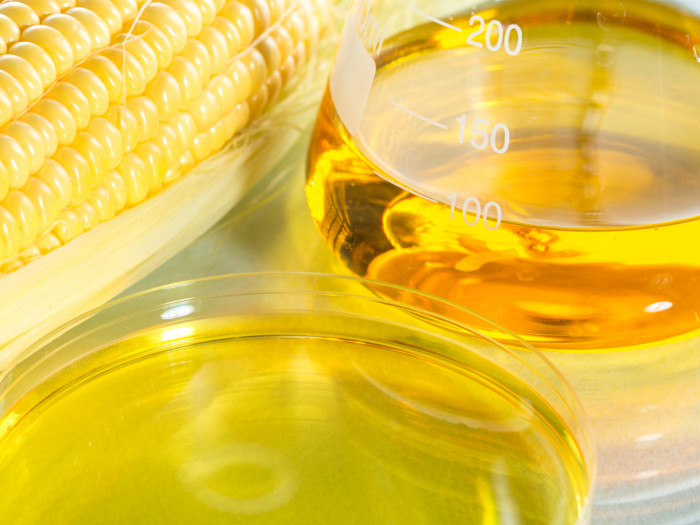Although high fructose corn syrup is found in countless foods that many people consume all the time, there are certain dangerous side effects that should be considered, as they might make you change your eating habits!
What is High Fructose Corn Syrup?
High fructose corn syrup (HFCS) is a concentrated and widely popular sweetener made from corn starch that has had some of its glucose converted into fructose. This makes it a very desirable and versatile sweetener that can be added to food in an easier way than traditional granulated sugar. It is also extremely cheap to make, given the massive amounts of corn that is produced every year around the world. [1]
There are various strengths of this corn syrup, depending on the percentage of fructose it contains. For example, most sugary sodas contain HFCS 55, whereas HFCS is more commonly found in sweets and baked goods. There is a great deal of debate over the health effects of consuming high levels of this corn syrup, but it remains one of the most ubiquitous additives in commonly purchased foods.

Corn syrup is made from the starch of corn. Photo Credit: Shutterstock
Serving Size : Nutrient Value Water [g] 24 Energy 281 Energy [kJ] 1176 Carbohydrate, by difference [g] 76 Sugars, total including NLEA [g] 75.65 Iron, Fe [mg] 0.03 Sodium, Na [mg] 2 Zinc, Zn [mg] 0.02 Copper, Cu [mg] 0.03 Manganese, Mn [mg] 0.09 Selenium, Se [µg] 0.7 Riboflavin [mg] 0.02 Pantothenic acid [mg] 0.01 Sources include : USDA [2]
High Fructose Corn Syrup Nutrition
According to USDA, high fructose corn syrup is a rich source of energy and also contains vitamins and minerals such as pantothenic acid, riboflavin, iron, sodium, zinc, copper, manganese, and selenium. [3]
Let us now look at the foods that contain this form of corn syrup.
High Fructose Corn Syrup Foods
The most common foods that contain this concentrated form of corn syrup include the following:
- Yogurt
- Frozen foods
- Granola bars
- Bread
- Junk food
- Ice cream
- Soda
- Candy
- Salad dressing
- Coffee cream
- Cereal bars
- Jam and jelly
- Sports drinks
High Fructose Corn Syrup Health Risks
There are quite a few risks to consuming an excess of HFCS, including gaining weight, elevated blood pressure, leaky gut syndrome, and high cholesterol, among others.
Weight Gain
Excessive consumption of any form of sugar will always lead to weight gain. But due to the inability of fructose inability to trigger insulin production or stimulate the metabolism, it is more likely to lead to weight gain and a slower metabolism. [4]
Cancer
Apart from obesity, high fructose corn syrup is associated with colorectal cancer. A 2019 animal study noted that intake of fructose, in combination with dietary glucose, can enhance the tumorigenesis. [5]
Moreover, a study published in the American Journal of Clinical Nutrition observed that is high in sugar and sugar-based foods might lead to a higher risk of pancreatic cancer. [6]
Fatty Liver Disease
When there is an excess of fructose in the body, it will be sent to the liver, which can cause it to be stored as fat, resulting in lipogenesis and eventually, fatty liver disease. [7]
Hypertension
Numerous researchers have found that drinking beverages sweetened with high fructose corn syrup will increase blood pressure more than unsweetened beverages. [8]
Leaky Gut Syndrome
When extra fructose needs to be handled by the gut, it can take more energy to metabolize, and deplete the resources of our intestinal lining, leading to a leaky gut syndrome, in some cases. [9]
High Cholesterol
After only a week or two of consistent consumption of HFCS, it has been found that LDL (bad) cholesterol levels will rise, which can increase your risk of atherosclerosis, heart attack, and stroke. [10]
High Fructose Corn Syrup vs Sugar
- HFCS: Although HFCS is derived from corn starch, it begins as pure glucose, and then enzymes are added to it, typically resulting in roughly 45% glucose and 55% fructose.
- Regular sugar: This is made up of 50% glucose and 50% fructose. This slight difference in fructose concentration doesn’t make a huge difference in terms of flavor or sweetness, although technically fructose is “sweeter” than glucose.
These two substances have similar effects on the body, and should always be consumed in moderation.
Alternatives to High Fructose Corn Syrup
If you want to cut down on your overall sugar intake and avoid some of the negative side effects of HFCS, some of the best alternatives are stevia, maple syrup, and raw honey, among others.
- Raw Honey: There are only 20 calories per teaspoon, and it is even sweeter than sugar!
- Stevia: There are zero calories in stevia, but it is at least 200 times sweeter than sugar.
- Dates: A single date only contains 20 calories, but it has an unusual sweetness and dietary fiber!
- Maple Syrup: There are 52 calories in one tablespoon of maple syrup, which is also sweeter than sugar.
- Coconut Sugar: There are 15 calories in one teaspoon of coconut sugar.
